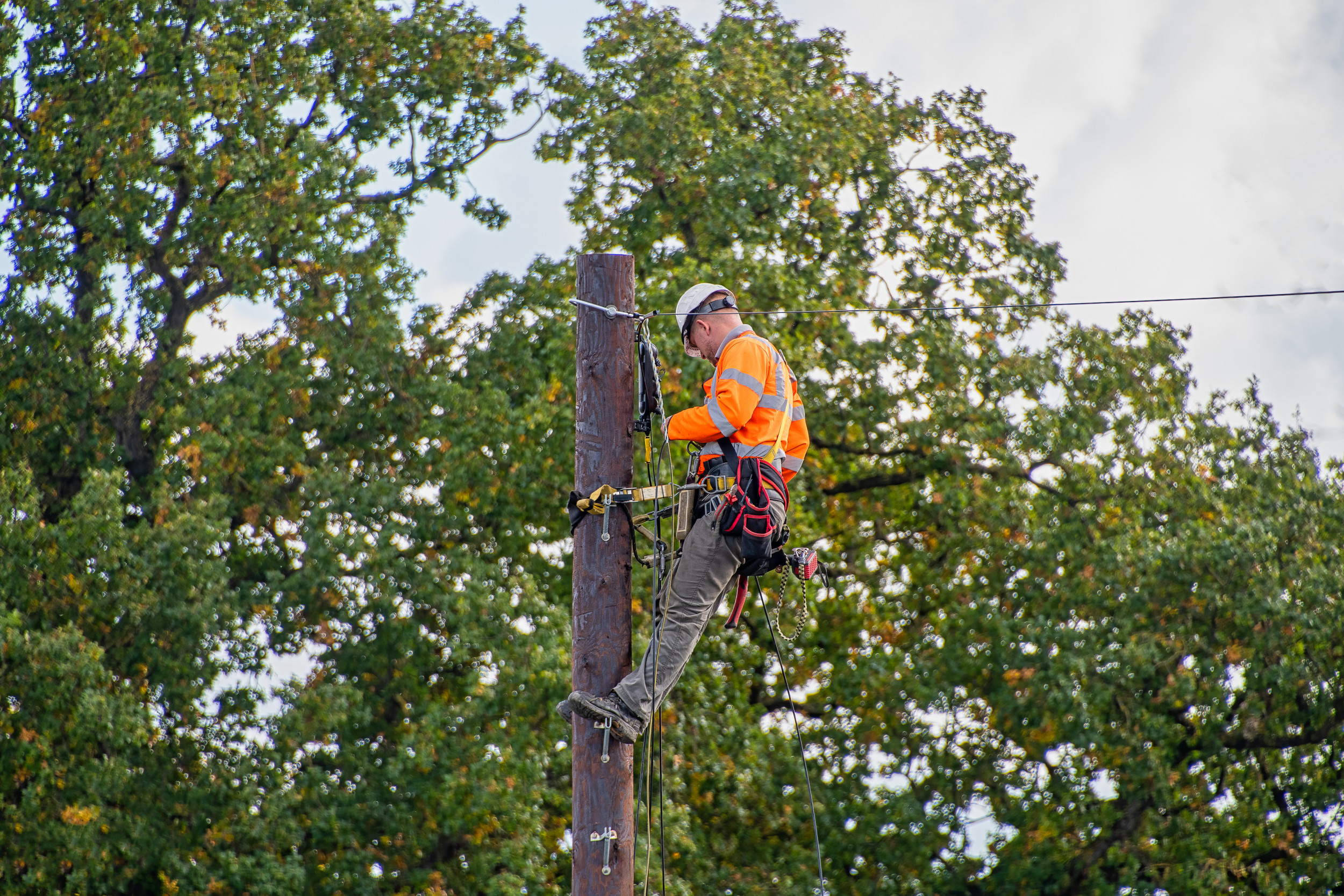
Last year, Americans were made a $65-billion promise — one of the largest public investments in connectivity since the Interstate Highway System in 1956. With roughly $45 billion from the 2021 infrastructure bill for network buildouts and nearly $20 billion in subsidies to make high-speed broadband services affordable to all, the states are now responsible for turning that money into impact. And as taxpayers behind those funds, we should all be paying attention.
An estimated 24 million Americans lack access to high-speed internet, and many others have access but cannot afford, understand or take full advantage of the available services. Among those in poverty, a 2020 study found more than one in six people have no internet access, and some experts have connected, among other factors, a lack of broadband and computer access to an endless cycle of barely making ends meet. One research study even connects a lack of internet during COVID-19 with mortality rates.
This historic funding makes it possible, within our lifetimes, to commit the financial resources to provide universal access to the newest indispensable form of communication and is apromising shot at closing the digital divide. By supporting universal access to broadband through discounted services and public awareness in unserved and underserved communities, we support the growth of new opportunities and healthier local economies. Everyone stands to benefit by making sure we get what we were promised.
Information Brings Opportunities
Broadband can be considered the new electricity, and its advantages go beyond improved lifestyle to greater job opportunities, educational access and better health. Telehealth can make it easier for people to manage their wellness and help them manage conditions while saving time and money for themselves and employers. Broadband can play an important role in taking full advantage of telehealth. Smaller cities and towns are trying to draw remote workers with big cash incentives, and many are willing to make the move. Still, these efforts usually depend on, in some way, the reliable availability of high-speed broadband.
From access to health care, education and better-paying jobs to more options to work from home (or anywhere) for more people, high-speed broadband is an enabler. As technology advances, slower speeds will increasingly reduce an individual's, business's and community's competitive edge. Unserved and underserved areas and the people who live there will miss out on more business opportunities of the remote workplace. While the rest of the country accelerates through broadband expansion, under-connected and disconnected communities risk stagnating and falling behind.
The Effects can Snowball
As people who meet the income criteria to benefit from affordability subsidies take advantage of the opportunities of high-speed broadband, they have the opportunity to earn more money for themselves, their family, and their communities. Introducing internet infrastructure into developing communities can open up more employment opportunities, and workers can usually expect higher wages. Higher incomes result in more local consumption and more people pumping money back into local businesses. Broadband opportunities can help people earn enough income to no longer need the subsidy.
The economic stability, education, social support and civic agency that come with broadband access are intrinsically linked to improved community health and equity outcomes. Education is a proven way out of poverty. Remote learning options for those faced with barriers to traditional classroom learning, like in rural areas, can result in more equitable access to education, material retention and study completion. As more people take advantage of educational opportunities, they make more informed choices and engage as more able members of their communities.
This Is Just a Kickstart
This milestone federal funding is about more than broadband buildouts — it's about expanding access and awareness to help kickstart a new cycle of economic growth and development. These subsidies will not last forever, and these funds are unlikely to come again, so states responsible for translating them into a sustainable impact will need to take their role seriously. They need a dedicated team capable of administering and planning this new essential service, a performance management system to keep everything on track — on time and within budget — and the flexibility to take in feedback and adapt as needed.
Stakeholder partnerships between public and private entities, nonprofits and communities will be critical for building buy-in at the local level to support successful program implementation and prevent or manage pitfalls along the way. With a greater understanding of the economics driving the digital divide within specific communities, states can strategize the best plan to meet their needs. Smaller service providers and local broadband partners can step in to fill in the gaps instead of waiting for bigger companies to get them. Routine meetings along with marketing and communications plans can boost public awareness and enhance adoption. As more people access the benefits of broadband, more communities benefit alongside them.
For this historic federal investment of our money to fulfill these lofty promises, we can't let anyone waste it. People need to understand their eligibility for these subsidies, sign up and connect for them to have an impact. Everyone has a stake in keeping up with broadband spending and advocating for everyone involved to do it right. Universal broadband may not eliminate low-income conditions completely, but we can continue to improve as a society by reducing the number of people who fall into them.
Uncommon Knowledge
Newsweek is committed to challenging conventional wisdom and finding connections in the search for common ground.
Newsweek is committed to challenging conventional wisdom and finding connections in the search for common ground.





